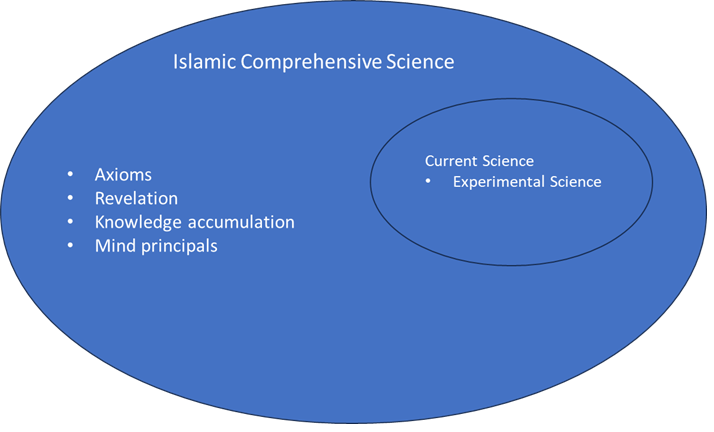Different View of Knowledge
Islamic epistemology views knowledge as a divine gift from Allah, the ultimate source of truth and wisdom. The Quran, a sacred revelation, imparts knowledge directly from God, guiding humanity towards enlightenment. The pursuit of knowledge, seen as an act of worship, allows individuals to understand and appreciate the Creator's wisdom. Islamic epistemology places high value on reason, promoting rational inquiry and logical analysis to comprehend and apply revealed knowledge in various contexts. It also recognizes empirical observation through the five senses as a valid knowledge source. Pursuing knowledge in Islam is considered an obligation and virtue, with the Quran and prophetic traditions emphasizing its importance. Muslims are urged to seek knowledge throughout their lives in both religious matters and secular fields, with the intention of understanding and serving the Creator's wisdom. The key difference between Islamic and Western epistemology lies in their methodologies for acquiring and verifying knowledge.
Islam integrates divine revelation, logical inquiry, and empirical observation within a comprehensive framework, led by the belief in a divine source of truth. Western philosophy, on the other hand, typically prioritizes human rationality, sensory perception, and skepticism, often underplaying or dismissing the role of religion and divine revelation.
Islamic science extends beyond material and sensory domains to include the realm of the spirit. The pursuit of knowledge is ongoing, and during challenging times, Muslims seek divine guidance from God. Allah, possessing superior knowledge about the ultimate outcomes of events and the benefits for humanity in this life and the hereafter, urges adherence to His directives and commands for genuine guidance.
Western thought has often downplayed the importance of rational knowledge and its fundamental truths, such as the necessity of a creator for creation and the principle of non-contradiction, particularly in validating the legitimacy and rationality of divine revelation. Conversely, Western thought often reduces the concept of Mind to a mere physical instrument, ignoring its fundamental principles. This tendency stems from Western history's distinctive features, its relation to the Christian faith, and its failure to comprehend Islam as a successful integration of physical and spiritual aspects.

It follows from this that social and management sciences are normative sciences, studying what should be and how we reach it, rather than what has been or what is. Islamic civilization often focuses on normativity, while Western studies have shifted towards a positivist approach (materialistic), prioritizing what is and what has been over what should be. This difference in approach has led to contrasting perspectives on issues such as ethics, governance, and social norms. While Islamic civilization values moral and ethical principles in decision-making, Western studies tend to prioritize empirical evidence and measurable outcomes.

